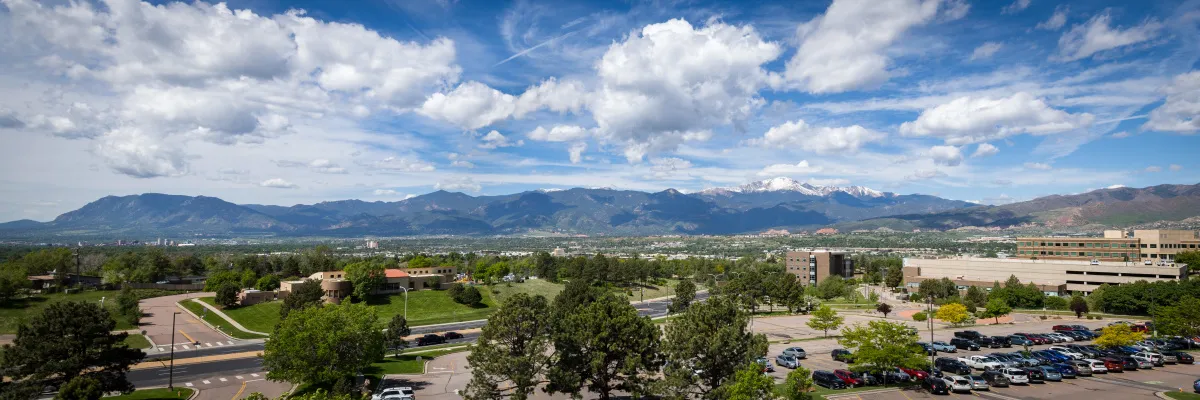
Undergraduate Lower-Division Courses
Course offered
Designed for the nonmajor. The introductory principles of biology stressing the relationships between man and the environment. Concepts include heredity, evolution, genetics, nutrition, physiology, and ecology.
May be taken in conjunction with BIOL 1000 to satisfy the LAS science requirement and lab requirement. Approved for Compass Curriculum requirement: Explore-Physical and Natural World. GT-SC1.
A series of experiments designed primarily to illustrate basic concepts of cellular biology and to provide hands-on laboratory experience. Extended Studies offering.
A series of experiments designed primarily to illustrate basic concepts of plant and animal organisms and to provide hands-on laboratory experience. Extended Studies offering.
The lecture component of an integrated lecture-laboratory course that presents the diversity of prokaryotic and eukaryotic organisms emphasizing structure, function, ecology, and evolution. Students must also register for the laboratory, BIOL 1310. Prer., High school biology and chemistry, or consent of instructor. Fall, Spring. GT-SC1.
The laboratory component of an integrated lecture-laboratory course that presents the diversity of prokaryotic and eukaryotic organisms emphasizing structure, function, ecology, and evolution. Students must also register for the lecture, BIOL 1300. Prer., High school biology and chemistry, or consent of instructor. Fall, Spring.GT-SC1.
The lecture component of an integrated lecture-laboratory course that introduces concepts of the structure/function relationships among biological molecules, of cellular metabolism, and of genetics and molecular biology. Students must also register for the laboratory, BIOL 1360. Open to biology, chemistry, health sciences, and physics secondary education majors only. Approved for Compass Curriculum requirement: Explore-Physical and Natural World. Prer., CHEM 1401/1402 (formerly CHEM 1301 or CHEM 1030), and BIOL 1300/1310 (formerly BIOL 1200), or consent of instructor. GT-SC1.
The laboratory component of an integrated lecture-laboratory course that introduces concepts of the structure/function relationships among biological molecules, of cellular metabolism, and of genetics and molecular biology. Students must also register for the lecture, BIOL 1350. Open to biology, chemistry, health sciences, and physics secondary education majors only. Approved for Compass Curriculum requirement: Explore-Physical and Natural World. Prer., CHEM 1401/1402 (formerly CHEM 1301 or CHEM 1030), and BIOL 1300/1310 (formerly BIOL 1200), or consent of instructor. GT-SC1.
Presentation of the basic aspects of microbiology within a broad biological perspective. Subject matter will include microbiological concepts and methodology; a survey of the distinguishing properties of microorganisms based on structural-functional relationships: introduction to growth, metabolism, genetics, and ecology. Fall. Spring. MUST ALSO REGISTER FOR BIOL 2130 – MICROBIOLOGY LAB. Prer., BIOL 1300/1310 (formerly BIOL 1200) or BIOL 2010; BIOL 1350/1360 (formerly BIOL 1210) or BIOL 2020; CHEM 1201 or CHEM 1401/1402 (formerly CHEM 1301); CHEM 1211 or CHEM 1411/1412 (formerly CHEM 1311).
MUST BE TAKEN IN CONJUNCTION WITH BIOL 2030. A series of laboratory experiments designed to illustrate the basic concepts of microbiology with hands-on experience. Fall, Spring. Prer., BIOL 1300/1310 (formerly BIOL 1200) or BIOL 2010; BIOL 1350/1360 (formerly BIOL 1210) or BIOL 2020; CHEM 1201 or CHEM 1401/1402 (formerly CHEM 1301 or CHEM 1030); CHEM 1211 or CHEM 1411/1412 (formerly CHEM 1311 or CHEM 1060).